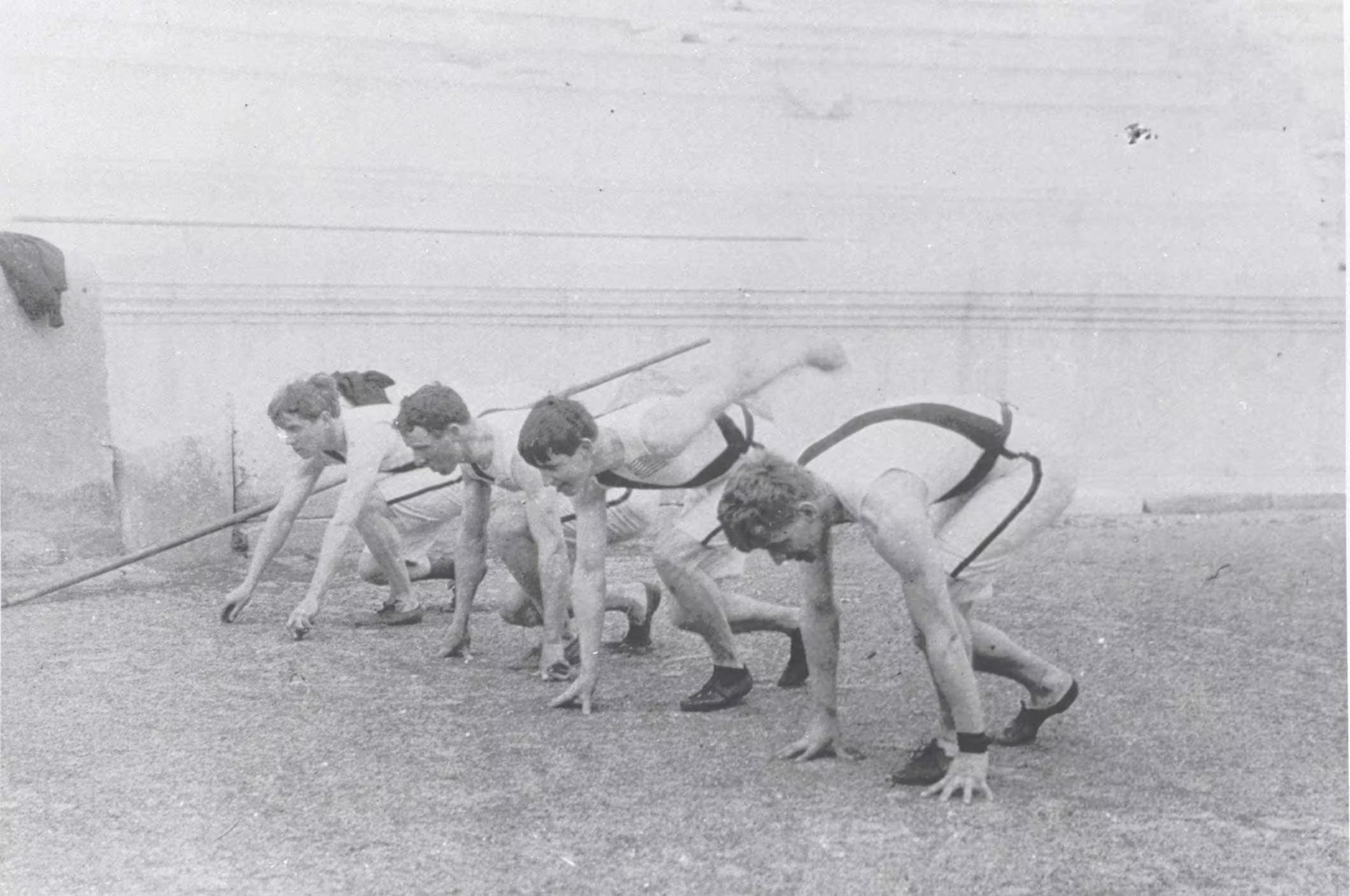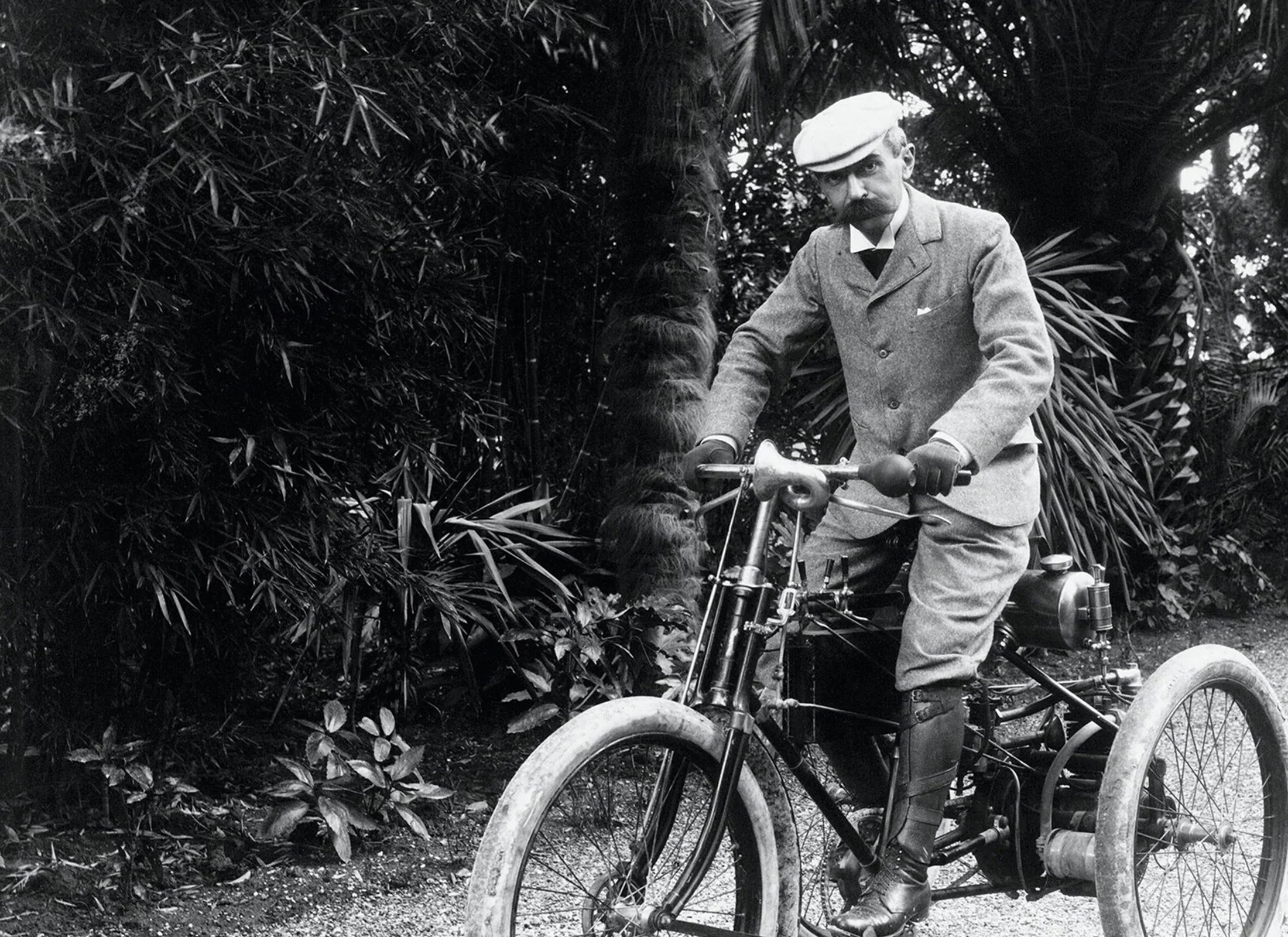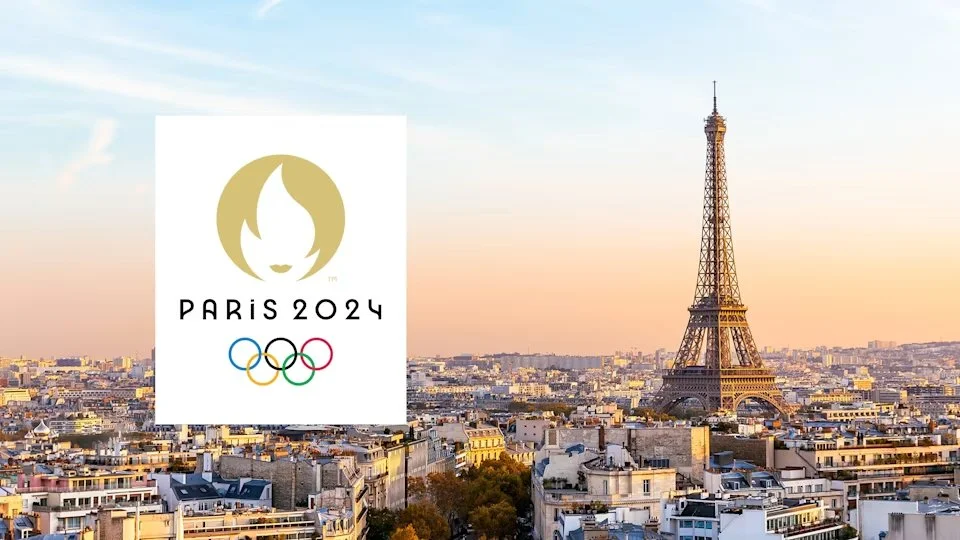What are the Origins of the Olympics Games + Key Dates & Facts between 1896 and 2024
The Origin: 3000 years ago
The history of the Games goes back around 3,000 years and originated in ancient Greece around 776 BC.
They were held in Olympia, a sanctuary site dedicated to Zeus, the king of the Greek gods. The Games were part of a religious festival, and they included various athletic competitions among different city-states.
The ancient Olympics were held every four years and featured events such as running, wrestling, boxing, and chariot racing. The four-year interval between the Ancient Games editions was named an “Olympiad”, and was used for dating purposes at the time: time was counted in Olympiads rather than years.
The Games served not only as a showcase of athletic prowess but also as a way to foster peace and unity among the often-warring Greek city-states, as they would suspend conflicts during the competition period.
The Revival: 1896 by Pierre de Coubertin
The modern Olympic Games were revived in the late 19th century, largely due to the efforts of Pierre de Coubertin, who believed in the educational value of sports.
The first modern Olympics took place in Athens, Greece, in 1896. Since then, the Games have grown to become a global event, featuring thousands of athletes from around the world competing in a wide variety of sports.
Pierre de Coubertin was a French educator and historian who is best known for founding the modern Olympic Games. Born on January 1, 1863, he was deeply interested in physical education and believed in the importance of sports for the development of character and citizenship.
Coubertin was inspired by the ancient Greek Olympics and aimed to revive the spirit of competition and camaraderie that he saw in those events. He organized the first modern Olympic Games in Athens in 1896, with the goal of promoting international peace and understanding through sports.
In addition to founding the Olympic Games, Coubertin also played a key role in establishing the International Olympic Committee (IOC) in 1894 to oversee the Games. His vision for the Olympics emphasized amateurism, sportsmanship, and the idea that the Olympics should be a celebration of human athletic achievements. He is often referred to as the "father of the modern Olympics." Coubertin passed away on September 2, 1937, but his legacy lives on through the enduring global tradition of the Olympic Games.
The Context: Historical & Social Influence
Pierre de Coubertin's desire to promote international peace and understanding through sports in 1896 was largely influenced by the historical and social context of the time. Several key factors contributed to his vision:
Post-Franco-Prussian War Sentiment: The Franco-Prussian War (1870-1871) had left France humiliated and isolated after its defeat by Germany. This conflict heightened nationalistic sentiments and animosities in Europe. Coubertin believed that fostering friendly competition through sports could help ease tensions between nations and promote peace.
Industrialization and Modernization: The late 19th century was a period of rapid industrialization and urbanization in Europe. As cities grew and societies changed, there was a growing concern about the physical and mental well-being of individuals. Coubertin thought that sports could serve as a means to improve physical fitness and moral character.
Educational Philosophy: Coubertin was influenced by educational reforms that emphasized the importance of physical education. He believed that sporting activities could cultivate qualities such as teamwork, discipline, and respect, which were essential for citizenship and international camaraderie.
Olympic Ideals: The ideals of the ancient Olympics, which celebrated athletic excellence and fostered a sense of unity among the competing city-states, inspired Coubertin. He sought to recreate this spirit of peaceful competition and international cooperation in the modern world.
Growing Internationalism: By the late 19th century, there was a rising awareness of the interconnectedness of nations due to globalization and communication advancements. Coubertin and other contemporaries believed that sports could serve as a universal language and help bridge differences between cultures.
As a result of these influences, Coubertin established the modern Olympic Games with the hope that they would create an environment where nations could come together to compete peacefully and foster mutual understanding, ultimately contributing to a more harmonious world.
The Founder: Background of Pierre de Coubertin
Apart from being an educator, Pierre de Coubertin had a multifaceted background that contributed to his philosophy about sports and the Olympics:
Family Background: Pierre de Coubertin came from a well-off family in France. His father was a manufacturer and a member of the French bourgeoisie. This financial stability allowed him to pursue education and travel, which influenced his ideas and worldview.
Education and International Experience: Coubertin attended several prestigious institutions, including the Lycée Louis-le-Grand and later the University of Paris. His educational pursuits included history, philosophy, and sports. Moreover, his travels across Europe, particularly to England and the United States, exposed him to different educational systems and the emphasis placed on physical education and athletics in these countries.
Interest in History and Philosophy: Coubertin had a deep appreciation for history, particularly classical antiquity. He was fascinated by the ancient Greek culture and the original Olympic Games, which inspired his vision of reviving the Olympics in a modern context. His philosophical interests shaped his ideas about the role of sports in human development and society.
4. Advocacy for Physical Education: Recognizing the importance of physical education in schools, Coubertin advocated for reforms in the French education system. He believed that sports could play a significant role in moral and character development, arguing against the limits of traditional educational methods, which he felt overlooked physical well-being.
5. Influence of Other Sports Movements: He was involved in various physical culture movements and became an advocate for sports such as fencing, gymnastics, and athletics. Coubertin was also influenced by the British public school system, which promoted sports as a means of character building.
6. Writings and Publications: Coubertin was a prolific writer. He published several works regarding education, sports, and the history of the Olympics. His writings reflected his ideas on the importance of youth development through sports and his vision for the Olympic movement.
Through this rich background, Coubertin was able to integrate his various interests into a cohesive philosophy that led him to establish the modern Olympic Games, viewing them as a vehicle for promoting physical excellence, character development, and international goodwill.
Noticeable Events at the First Olympic Games in 1896
The first modern Olympic Games took place in Athens, Greece, in 1896. Here are some of the most noticeable events and highlights from the Games:
Revival of the Olympics: The 1896 Games marked the revival of the ancient Olympic tradition, which had not been held since 393 AD. The success of these games helped inspire the continuation of the modern Olympic movement.
Opening Ceremony: The games opened on April 6, 1896, with a grand ceremony at the Panathenaic Stadium, which was a historic venue built entirely of marble and could hold about 80,000 spectators.
First Olympic Champion: The first event of the Games was the men's 100 meters, won by Thomas Burke of the United States, who became the first Olympic champion of the modern era.
Diverse Sports: The 1896 Olympics featured nine sports: athletics, cycling, fencing, gymnastics, shooting, swimming, tennis, weightlifting, and wrestling. The inclusion of these events marked the beginning of a diverse Olympic program.
Greek Success: The host nation, Greece, had a strong showing, finishing second in the overall medal count with 46 participants and winning several gold medals, particularly in athletics.
Marathon Event: The marathon was introduced at these Games, inspired by the legend of Pheidippides. The race was 40 kilometers (about 24.85 miles), and it was won by the Greek runner Spyridon Louis, who became a national hero.
Participation of Women: Women were not allowed to compete in the 1896 Olympics, which reflected the social norms of the time. This exclusion remained until the 1900 Paris Games.
International Participation: Athletes from 13 nations participated, including countries such as the United States, France, Germany, and Hungary, showcasing an early sense of international competition.
First Olympic Flag: The Olympic flag, featuring five interlocking rings representing the five continents, was not used until the 1920 Games, but this first edition laid the foundation for the Olympic identity that would develop over the years.
The 1896 Olympics set the stage for the future of the Olympic movement and established many traditions that continue to be part of the Games today.
10 Biggest Olympics Highlights between 1896 and 2024
Here’s a list of ten of the most noticeable events in the history of the Olympic Games from the first modern Olympics in 1896 up to the 2024 Games:
1896 - First Modern Olympics: The inaugural modern Olympic Games were held in Athens, Greece, reviving the ancient tradition and featuring 13 nations with 43 events.
1900 - Inclusion of Women: The Paris Olympics marked the first time women were allowed to compete, with female athletes participating in tennis and golf.
1936 - Berlin Olympics: This Olympic Games were infamous for being used by Nazi Germany to promote its ideologies. However, African American athlete Jesse Owens famously won four gold medals, challenging racist beliefs.
1960 - First Televised Olympics: The Rome Olympics were the first to be televised globally, significantly increasing the visibility and popularity of the Games.
1968 - Black Power Salute: During the Mexico City Games, American athletes Tommie Smith and John Carlos raised their fists in a Black Power salute during the medal ceremony, becoming a powerful symbol of the civil rights movement.
1972 - Munich Massacre: The Games in Munich were overshadowed by a terrorist attack in which 11 Israeli athletes were taken hostage and killed, leading to a significant change in Olympic security protocols.
1980 and 1984 - Boycotts: The Moscow Games in 1980 saw a boycott by the United States and several other countries in response to the Soviet invasion of Afghanistan. In retaliation, the 1984 Los Angeles Games were boycotted by the USSR and other Eastern Bloc countries.
1992 - The Dream Team: The Barcelona Olympics featured the USA men's basketball team, known as the "Dream Team," which included NBA legends like Michael Jordan, showcasing the globalization of the Olympics.
2000 - Sydney Olympics: The Sydney Games were widely praised for their organization and the spirit of the athletes. Cathy Freeman, an Indigenous Australian athlete, lit the Olympic torch and won gold in the 400 meters, symbolizing reconciliation.
2021 - Tokyo Olympics (held in 2021): Postponed due to the COVID-19 pandemic, the Tokyo Games were held without spectators and highlighted the resilience of athletes. The Games were notable for promoting mental health awareness, especially after Simone Biles prioritized her well-being.
These events reflect significant cultural, political, and social influences on the Olympic Games over the years and highlight the evolution of the Olympics as a platform for global unity, competition, and sometimes controversy.
10 Highlights of the 2024 Paris Olympics Games
As of now, the Paris 2024 Olympic Games are set to be a major global event, and while specific highlights will emerge closer to the date, here are ten anticipated key highlights:
Unique Venues: The 2024 Olympics will feature some iconic venues, including competitions held at historic sites like the Stade de France, the Grand Palais, and outdoor events along the Seine River, providing spectacular backdrops.
Opening Ceremony on the Seine: The Paris Games will have a unique opening ceremony, taking place along the River Seine instead of a traditional stadium, with thousands of athletes parading in boats. This will be the first time the opening ceremony occurs outside a stadium.
Sustainability Focus: Paris 2024 has a strong commitment to sustainability, aiming to reduce the carbon footprint of the Games. This includes the use of existing venues, minimizing waste, and promoting eco-friendly practices.
Gender Equality: The Paris Games aim for gender parity, with equal numbers of male and female competitors for the first time in Olympic history, promoting inclusivity in sports.
New Sports Introduction: The 2024 Olympics will include new sports such as breakdancing (breaking), skateboarding, surfing, and sport climbing, appealing to younger audiences and diversifying the Olympic program.
Youth and Urban Sports: Emphasizing urban sports and youth culture, the Games will include events that target a younger demographic, showcasing the evolution of the Olympics.
Athlete Mental Health Focus: Continuing the momentum from the Tokyo Games, there will likely be a focus on athlete mental health and well-being, addressing the pressures faced by competitors.
Technological Innovations: With advancements in technology, the Paris Olympics may introduce enhanced viewing experiences, including virtual reality and augmented reality elements, improving fan engagement.
Cultural Celebrations: The Games will also highlight French culture through various events and performances, showcasing local artists and traditions, enhancing the festive atmosphere of the Olympics.
Global Participation: As with all Olympic Games, expect a diverse range of nations to participate, reflecting a global celebration of sportsmanship and unity, showcasing athletes from many different backgrounds.
These highlights encapsulate the spirit and vision of the Paris 2024 Olympic Games, aiming to create a memorable and innovative experience for athletes and spectators alike.
How many Games have been held between 1896 and 2024?
Between 1896 and 2024, there have been a total of 32 Olympic Games. This includes both the Summer and Winter Olympics. Here’s a breakdown:
Summer Olympics (from 1896 to 2024)
1896 (Athens)
1900 (Paris)
1904 (St. Louis)
1908 (London)
1912 (Stockholm)
1916 (Canceled due to World War I)
1920 (Antwerp)
1924 (Paris)
1928 (Amsterdam)
1932 (Los Angeles)
1936 (Berlin)
1940 (Canceled due to World War II)
1944 (Canceled due to World War II)
1948 (London)
1952 (Helsinki)
1956 (Melbourne)
1960 (Rome)
1964 (Tokyo)
1968 (Mexico City)
1972 (Munich)
1976 (Montreal)
1980 (Moscow)
1984 (Los Angeles)
1988 (Seoul)
1992 (Barcelona)
1996 (Atlanta)
2000 (Sydney)
2004 (Athens)
2008 (Beijing)
2012 (London)
2016 (Rio de Janeiro)
2020 (Tokyo, held in 2021 due to the COVID-19 pandemic)
2024 (Paris, upcoming)
Total Summer Olympics: 32 (including 2024)
Winter Olympics
1924 (Chamonix)
1928 (St. Moritz)
1932 (Lake Placid)
1936 (Garmisch-Partenkirchen)
1940 (Canceled due to World War II)
1944 (Canceled due to World War II)
1948 (St. Moritz)
1952 (Oslo)
1956 (Cortina d'Ampezzo)
1960 (Squaw Valley)
1964 (Innsbruck)
1968 (Grenoble)
1972 (Sapporo)
1976 (Innsbruck)
1980 (Lake Placid)
1984 (Sarajevo)
1988 (Calgary)
1992 (Albertville)
1994 (Lillehammer)
1998 (Nagano)
2002 (Salt Lake City)
2006 (Turin)
2010 (Vancouver)
2014 (Sochi)
2018 (Pyeongchang)
2022 (Beijing)
Total Winter Olympics: 24
The total Olympic Games (Summer and Winter combined) held between 1896 and 2024 is 32 Summer Olympics and 24 Winter Olympics, making a total of 56 Olympic events (noting that these two types of Games are held separately).









